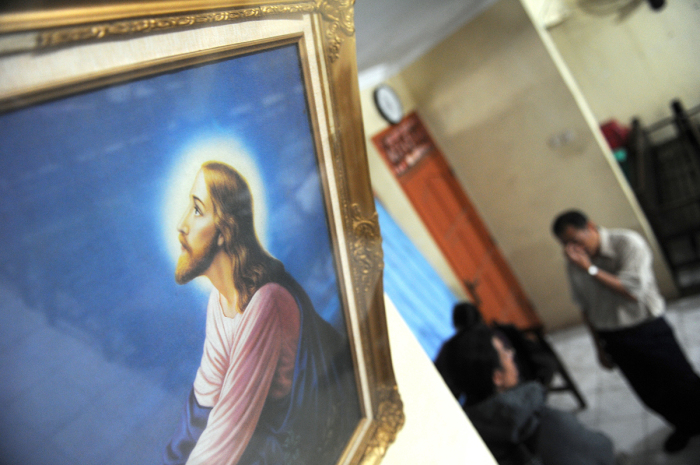
The United States Commission on International Religious Freedom is warning that the state of religious freedom in Indonesia remains dire even as that nation’s federal government has taken steps to improve circumstances for religious minorities in the country.
While the bipartisan agency tasked with creating recommendations to the U.S. State Department about which countries to add to its list as Countries of Particular Concern — a designation given for engaging in egregious religious freedom violations — acknowledged that Indonesia “has taken steps to promote religious tolerance and reduce incidents of religiously motivated terrorism,” it warned in its report that the country’s efforts are insufficient.
“It has also continued to employ legal frameworks — including a presidential decree and the Criminal Code — to regulate religion, criminalize blasphemy, and broadly infringe on freedom of religion or belief,” the report states.
USCIRF based its findings about Indonesia on a trip the delegation took to the Muslim-majority nation in May, less than a year after the election of Prabowo Subianto as president.
One of the ongoing challenges to religious freedom in Indonesia stems from a requirement for religious groups to obtain a permit to construct a new house of worship. This regulation, implemented in 2006, requires religious groups to submit a list of 90 congregation members, document support from 60 households of a different faith and secure recommendations from religious leaders and the local Interfaith Harmony Forum.
Religious minority groups have faced protests and violence for engaging in actions critics allege amount to skirting the requirement to obtain a permit before constructing a new house of worship. Earlier this year, a group of Muslims led a protest against a Catholic church for conducting masses at a multipurpose building, insisting that holding services there required a permit.
In June, a mob of 200 Muslims stormed a home used by Christians for a youth retreat, claiming that their use was illegal. The home was vandalized, and dozens of children were forced to flee.
The report also highlighted how Indonesians have faced prison sentences ranging from seven months to three years for violating blasphemy laws for alleged criticism of majority religions. Commissioners expressed concern that forthcoming changes to blasphemy laws will expand the scope to include actions or words characterized as “hostility based on religion,” and “insulting” or “defaming” a particular religion.
USCIRF also noted that Indonesia’s Criminal Code is being updated to prohibit leaving a particular religion, designated as a form of apostasy.
While Indonesia’s Ministry of Education has prohibited localities from requiring female students to wear hijabs, over 70 local regulations across Indonesia still require women and girls to wear the Muslim covering. Local governments have also prohibited coffee shops and karaoke lounges from opening during Ramadan, and Valentine’s Day has also been banned in areas of the country controlled by Sunni Muslims.
Another example of hostility or indifference toward the rights of religious minority groups in Indonesia involves a failure to adequately respond to protests that broke out following the Oct. 7, 2023, terror attack in Israel.
USCIRF added in its report that it has consistently recommended that the State Department designate Indonesia on a Special Watch List for countries that engage in violations of religious freedom, but not to the level of severity as nations listed as a Country of Particular Concern.
The State Department last published a list of CPCs and Special Watch List countries in December 2023, while former President Joe Biden was still in office, and Indonesia was not on either list.
Ryan Foley is a reporter for The Christian Post. He can be reached at: ryan.foley@christianpost.com

















